#nevada caucuses
Text
Why Voting For Nikki Haley To Stop Donald Trump Will Fail
There is a rational albeit flawed movement within never trump conservative circles who desire Democrats & Independents to register as Republicans & stop Donald Trump in the GOP Primaries.
Note: Featured image of Nikki Haley via Britannica.
One of those states is New Hampshire, where unaffiliated voters make up a plurality of the electorate and can participate in the primary of their choice.…
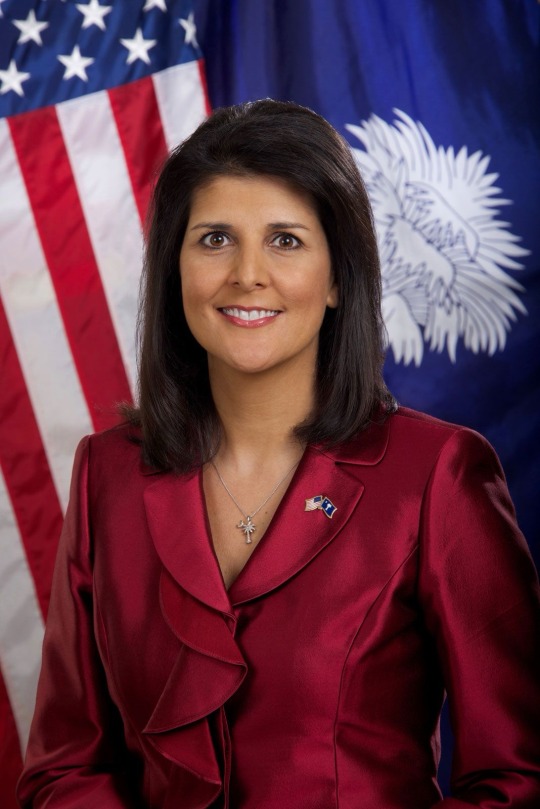
View On WordPress
#Caucuses#Democrats#Donald Trump#Elections#GOP#Independents#Iowa#Nevada#Never Trump#New Hampshire#Nikki Haley#Politics#Primaries#Republicans#South Carolina#Trump#United States#Voting
0 notes
Text
12 notes
·
View notes
Text
From the October 30, 2023 article:
On Tuesday, Feb. 6, 2024, Nevada will hold a state-run primary.... It means nothing. The winner doesn't get any delegates.
Two days later, on Feb. 8, 2024, the Nevada Republican Party will hold caucuses, like Iowa. That's where all the delegates will be chosen.
...
The consequence of all this is that Nevada could have two winners. Nikki Haley, Tim Scott, and Mike Pence filed to run in the primary.... The winner won't get any delegates but will get a ton of publicity and some momentum, which may be more valuable than the handful of Nevada delegates. Two days later, Donald Trump, Ron DeSantis, Vivek Ramaswamy, Chris Christie, and Doug Burgum will compete for the actual delegates in the caucus. When the caucus winner is announced, there will be less publicity and a lot of explanations of why the state had both.
Haley's strategy is probably smart. She is likely to win the primary, since all she has to do is outpoll Scott and Pence. Headlines everywhere the next day will be "Nikki Haley Wins the Nevada Primary." People in other states won't understand that she didn't get any delegates. When Trump wins the caucuses 2 days later, a lot of people are going to be scratching their heads and saying: "But didn't Haley already win Nevada?"
4 notes
·
View notes
Text
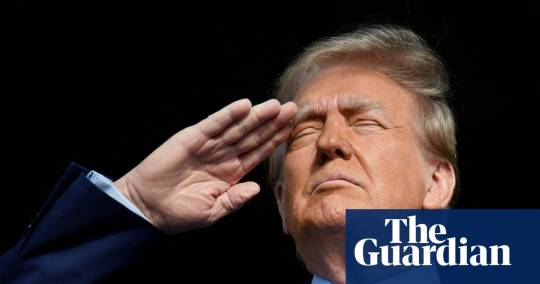
Donald Trump wins Nevada Republican caucuses in effective one-horse race http://dlvr.it/T2W7W5
4 notes
·
View notes
Text
So here we are, eight months before any votes are cast in the race for the Republican nomination and by most standards—polling, name recognition—Donald Trump is set to win it again.
So why are so many Republicans lining up to challenge the former president? Some of them are longshots with money to burn, but others are well-known elected officials with experience, money, and a reasonable story for why they should be president. Last week, Senator Tim Scott (R-SC) joined the race and soon we expect former New Jersey Governor Chris Christie to join along with former Vice President Mike Pence.
A few months ago, I helped create the now conventional wisdom which says that a large field of challengers will help Trump because the Republican winner-take-all or winner-take-most delegate selection rules are tailor made for a candidate who holds a solid base among primary voters and who can wrack up a series of plurality wins.
But the conventional wisdom overlooks an important caveat—for Trump to win, he has to win early, and the field of candidates has to be large and stay large after Super Tuesday 2024.
Here’s why.
The race for a presidential nomination takes place in three stages. We’re in stage one right now: the so-called “invisible primary.” This stage lasts from the spring of 2023 until the first votes are cast. During the invisible primary, a lot of important things happen. Candidates raise money, they build campaign staffs, they hone their appeals to the party faithful. And a lot of early conclusions are drawn–often incorrectly. Frequently, the candidate with widespread name identification is the “winner” of these early polls and goes on to win the nomination.[1] By most measures, Trump is winning the invisible primary, which is good news for him.
However, he is not home free. Trump is not your ordinary front runner. He has been indicted and may face more indictments before the Republican convention next summer. He has doggedly stuck to cultivating his base, which, while intense and loyal, is not likely to carry him in a general election. While he is loved, he is also hated, meaning that he will certainly have problems in the general election.
So, onto stage two of the process—the early primaries. This stage runs from late January or early February 2024 to March 4, 2024, or whenever the day before the Super Tuesday is. In 2024, the early primary stage will (on the Republican side) consist of four states: Iowa, New Hampshire, Nevada, and South Carolina. These four small states have very few delegates. In fact, out of the approximately 1,234 delegates, someone will need to win the Republican nomination. These states in total account for 138 delegates or only 11% of the total needed to win.[2]
During this short period of time, perhaps only five or six weeks, Trump will be most at risk. In these weeks someone needs to take the nomination away from him. This could happen if he performs below expectations. Many a frontrunner has stumbled in these states. As far back as 1968, President Lyndon Johnson won the New Hampshire primary with 48% of the vote but Sen. Gene McCarthy (D-MN) won a sizeable enough percentage of the vote (42%) that a few weeks later, Johnson decided not to run again. More recently, Hillary Clinton’s supposed juggernaut to the nomination was upset by a young African American senator from Illinois, Barack Obama, whose surprising win in the nearly all-white Iowa Caucuses of 2008 turned the nomination into a long race which Clinton ultimately lost. In these early contests, someone can catch fire, and when they do, they acquire that most valuable of presidential primary assets: momentum. But if Trump wins in the early contests, a few candidates may stick around to split up the anti-Trump vote, as happened in 2016, and that will help him win.
That brings us to stage three of the nominating process. What makes stage three so critical is that it is a three-month race for delegates and one in which candidates have to be able to compete in 46 states with different types of systems. Momentum is worth more than money as billionaires Tom Steyer and Mike Bloomberg discovered in 2020. Stage three begins in the first week of March and continues on until the first or second week of June. During this period, candidates will trade the retail campaigning of the early states to participate in a mad dash around the country from TV studios and radio stations. If someone other than Trump catches fire, they will amass large sums of money thanks to internet fundraising and the kind of free press—momentum—that is manna from heaven for a campaign. If stage three features a one-on-one race between Trump and some new fresh face, Trump could very well lose the delegate race.
This requires, however, that the candidates that falter in the early states get out of the race. In 2016, that didn’t happen. The current conventional wisdom that says a large field helps Trump is based on a scenario where all candidates stay in the race, thus allowing Trump to be a plurality winner. However, some Republicans are harkening back not to 2016 but to the 2020 Democratic race where, in a fast-paced weekend between the South Carolina primary and Super Tuesday, most of Biden’s opponents dropped out of the race, allowing him a one-on-one contest with Bernie Sanders, which he won handily.
If Trump falters in stage two and finds himself facing one strong opponent, he could be defeated in stage three. In spite of his strong showings in polls of Republican voters, a recent CNN poll found that “…wide swaths of Republican-aligned voters are willing to consider either of the two, [Trump or DeSantis] as well as several other candidates.” A recent Washington Post poll found that Republican voters were not very focused on electability, which would seem to favor Trump. However, “electability” matters in primary elections and many a voter has voted their head over their heart in order to beat the other party. It was the electability issue which catapulted Biden from “dead man walking” to Democratic nominee in just 72 hours in March of 2023.
So, while the safe bet right now is on Trump—what happens in the early primaries will determine whether his path to the nomination will be straightforward or not. In June of 2015, the Republican frontrunner was Florida Governor Jeb Bush, and look what happened to him—he did poorly in the first three contests and never even made it to Super Tuesday.
6 notes
·
View notes
Text
Some Idiosyncratic Observations of the Elections So Far
By: Michael Barone
Herewith some idiosyncratic, perhaps eccentric, observations on the electoral contests so far in this presidential cycle.
1. Turnout is down. In the first five contests — the Iowa and Nevada caucuses and the New Hampshire, South Carolina and Michigan primaries — Republican turnout was down from 2016, the most recent cycle with serious contests. That’s based on precincts…
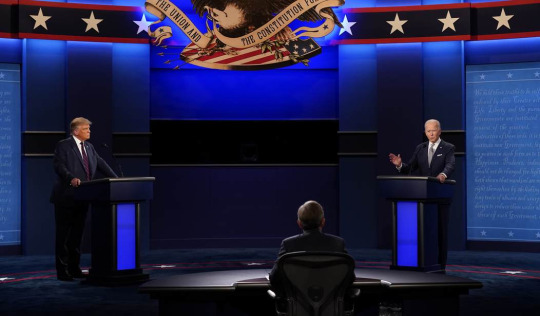
View On WordPress
0 notes
Text
Nevada caucus replay: Donald <b>Trump</b> wins Silver State, declares victory in Virgin Islands
New Post has been published on https://www.google.com/url?rct=j&sa=t&url=https://www.usatoday.com/story/news/politics/elections/2024/02/08/nevada-republican-caucus-live-updates-donald-trump/72441423007/&ct=ga&cd=CAIyGjUzM2UwMTY5ZmFhZTIwMGQ6Y29tOmVuOlVT&usg=AOvVaw0Daq7hrsOMG9LK_6SXBwa0
Nevada caucus replay: Donald Trump wins Silver State, declares victory in Virgin Islands
Donald Trump picked up victories in Nevada and the U.S. Virgin Islands’ caucuses on Thursday as he seeks another term in office.
0 notes
Text
Trump wins Republican caucuses in Nevada
Former US President Donald Trump won the Republican presidential caucuses in Nevada on Thursday, getting closer to the party’s nomination.
Nikki Haley, a former United Nations ambassador, missed the caucuses, the only ones in Nevada that count towards the Republican Party’s nomination. Haley claimed she believed Nevada’s caucuses were an unfair process in Trump’s favour.
Trump’s victory in Nevada gives him all 26 state’s delegates out of the total of 1,215 required to officially clinch the party’s nomination.
Read more HERE
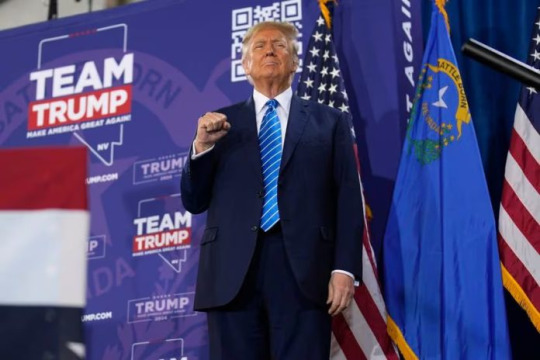
#world news#world politics#news#us#usa#usa news#united states#americans#america#us politics#us news#usa today#usa politics#donald trump#trump#trump 2024#2024 election#republicans#election 2024#nikki haley#elections#election
0 notes
Text
LAS VEGAS (AP) — Nikki Haley was swamped in Nevada’s symbolic Republican presidential primary as GOP voters resoundingly picked the “none of these candidates” option on the ballot in a repudiation of the former U.N. ambassador who is the last remaining major rival to front-runner Donald Trump.
Trump didn’t compete in Tuesday’s primary, which doesn’t award any delegates needed to win the GOP nomination. The former president is instead focused on caucuses that will be held Thursday and will help him move closer to becoming the Republican standard-bearer
1 note
·
View note
Text
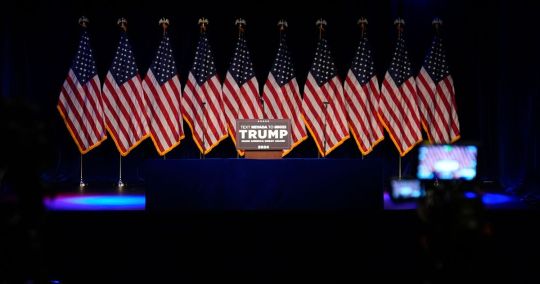
Donald Trump Wins Nevada’s Republican Caucuses After Being The Only Major Candidate To Participate http://dlvr.it/T2Vv9K
2 notes
·
View notes
Text
The “none of these candidates” option has won in Nevada’s symbolic Republican presidential primary contest, an embarrassing result for Nikki Haley, who was the only major candidate on the ballot.
The former U.N. ambassador opted to compete in the state-run primary election Tuesday instead of the party’s presidential caucuses, the only contest in the state that awards delegates toward the nomination. Former President Donald Trump is the only major candidate competing in the caucuses on Thursday and will likely sweep the state’s Republican delegates as a result.
Utilizing a quirk of Nevada election law, more voters on Tuesday marked their primary ballots for “none of these candidates” than cast their votes for Haley.
Haley had said beforehand she was going to “focus on the states that are fair” and did not make much effort to campaign in the western state.
Nevada Gov. Joe Lombardo, a Republican, had announced beforehand that he would vote for “none of these candidates” on Tuesday. Several Republicans interviewed heading to the polls said they intended to do the same.
“I think it’s my duty,” said Jeff Turner, a 65-year-old voting in Reno. “I think we all have the right to vote, we ought to vote. And even if it’s none of these candidates, it’s at least stating where I’m at. And I’m hoping others will see that.”
0 notes
Text
Big shoutout to Nikki Haley for running unopposed and still losing the primary to Option E, None of the Above.
She continues to do the impossible
0 notes
Text
Trump vs. Haley: Divisions and the Future of the Republican Party
#authority #ballotbox #BillWeld #campaigntactics #conservative #divisions #endorsement #foreignpolicy #Identity #ideologicalidentity #inclusive #independents #infighting #longtermviability #moderates #Nevadacaucuses #NikkiHaley #northkorea #Parisclimateagreement #polarizing #postTrumpera #pragmatic #PresidentTrump #republicanparty #Support #twitter #unite
#Politics#authority#ballotbox#BillWeld#campaigntactics#conservative#divisions#endorsement#foreignpolicy#Identity#ideologicalidentity#inclusive#independents#infighting#longtermviability#moderates#Nevadacaucuses#NikkiHaley#northkorea#Parisclimateagreement#polarizing#postTrumpera#pragmatic#PresidentTrump#republicanparty#Support#twitter#unite
0 notes
Text
Donald <b>Trump</b> wins Nevada Republican caucuses in effective one-horse race
New Post has been published on https://www.google.com/url?rct=j&sa=t&url=https://www.theguardian.com/us-news/2024/feb/08/donald-trump-wins-nevada-caucuses&ct=ga&cd=CAIyGjUzM2UwMTY5ZmFhZTIwMGQ6Y29tOmVuOlVT&usg=AOvVaw0ijx6MUmFc-bIvZfoCF2al
Donald Trump wins Nevada Republican caucuses in effective one-horse race
Unknown Ryan Binkley was only other candidate running, two days after Nikki Haley came second in state Republican primary.
0 notes